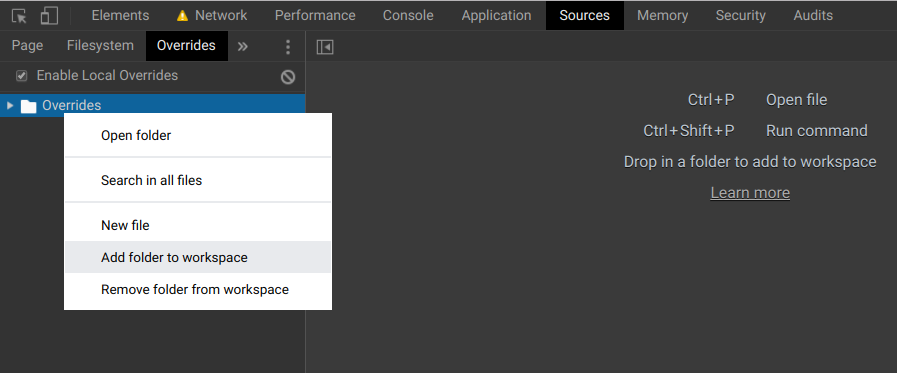README
Javascript bundler & code-splitter in the browser #microstack

Usage
<html lang="en">
<head>
<script src="load.js"></script>
</head>
<body>
<div id="app"></div>
<script>
load([
"http://stylus-lang.com/try/stylus.min.js",
"https://unpkg.com/vue@2.5.13/dist/vue.min.js",
"https://unpkg.com/vue-router@3.0.1/dist/vue-router.js",
"https://unpkg.com/http-vue-loader@1.3.4/src/httpVueLoader.js",
"https://unpkg.com/photoswipe@4.1.3/dist/default-skin/default-skin.css",
],'/js/bundle.js')
.then( () => load(["/js/main.js"]) )
.catch( console.error )
</script>
</body>
</html>
Now loading index.html will work as usual. Loading
index.html?dev, will trigger the bundler (or typeload.cmd('dev')in the devtools console).

The second argument (/js/bundle.js hints loadjs that it can be bundled, resulting in
a tab on the right).
Loading the html-file without the ?flag (or running load.cmd('')) will load the bundled-version instead of the individual files.
Install
Just save load.js to a directory, or run this in the terminal:
$ wget https://raw.githubusercontent.com/coderofsalvation/load.js/master/load.js
And add index.html like shown above
Extending
Developers can add tabs to trigger other tools, tests or actions like so:
load.addButton('my tab', () => alert('run test') )
Why
The time is ripe for in-browser webdevelopment:
- es6 is supported in current browsers
- chrome devtools allows serving gitrepositories locally using 'overrides'
- javascript modules work in the browser
- sass-like css syntax can run directly in the browser using stylus .e.g
- code-splitting can be achieved using http-vue-loader and similar module-loaders
- npm modules can be included directly in the browser using npm CDN's like unpkg.com
- api responses can be easily mocked or requested remotely
It goes without saying that this doesn't apply for people who got emotionally or financially attached to their current tools & stacks.
How to develop locally?
Simple create an Overrides-directory with projects, for example on a chrome book
hit ctrl-t to start a terminal
> shell
$ cd Downloads
$ mkdir Overrides
$ cd Overrides
$ mkdir myproject.com
Now add 'Overrides' as the overrides folder, and type
https://myproject.comand voila..a free IDE editor + it serves the webpage over https!
